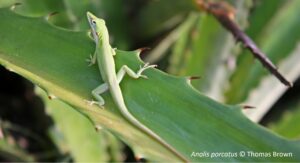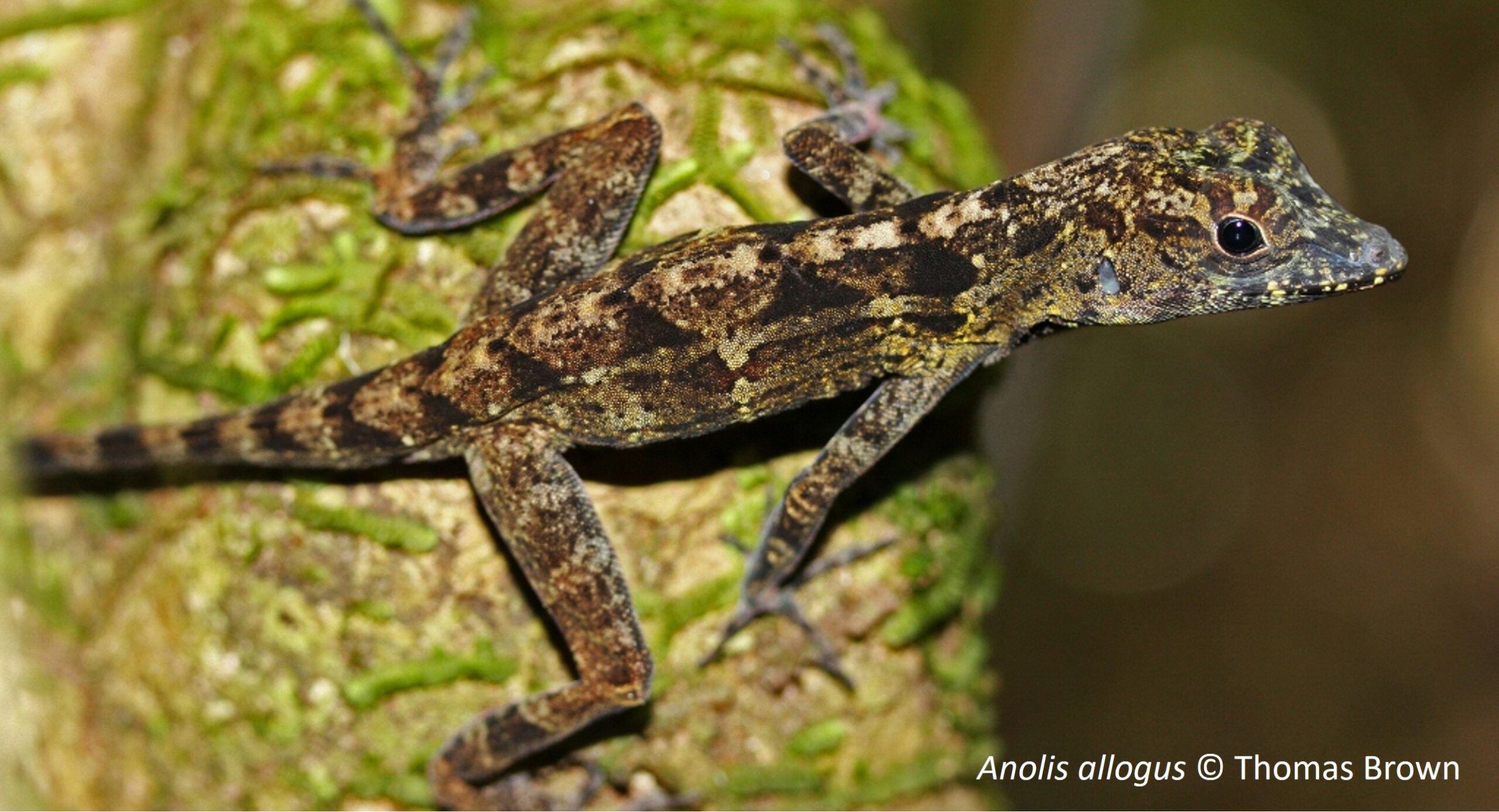Climate change is one of the greatest challenges that the natural world is currently facing. Its impacts are expected to affect many aspects of biodiversity. Among other things, changes in temperature and precipitation patterns can affect the availability of suitable habitat for many species, and their ability to disperse and colonize new areas may be compromised. Their geographic ranges are then likely to shift in response to changing climatic conditions.
In a recent study, the effect of climatic variation on Cuban Anolis lizards was investigated. Anole lizards are a diverse group of reptiles found throughout the Caribbean islands. In Cuba, a large variety of anole species are found, adapted to different habitats and ecological niches, where they play important roles in ecosystem functioning and food webs. The authors of the study hypothesized that widespread species that encounter higher climatic variation across their distributions should be more tolerant to extreme or variable weather conditions than species with restricted distribution, and may thus be more likely to conserve their current geographical ranges under future climate change scenarios.
To test this hypothesis, the authors used a combination of climate data and ecological niche modelling. Environmental data for current and future climate scenarios were used in a model to generate potential ecological niches for each species and ecomorph, and to predict potential range shifts under future climate scenarios.
 The results showed that, contrary to expectations, climatic variation experienced by anoles in their habitats did not correlate with the area they occupy, although differences between species were highlighted. Eastern species were found to inhabit more heterogeneous areas with higher climatic variation and could thus show a wider climatic tolerance. On the other hand, anoles occupying habitats with low climatic variation, such as the Crown-giant anoles, are predicted to lose a higher proportion of suitable habitat under future scenarios of climate change. Overall, the study found that most Cuban anole species will be affected under future scenarios of climate change, leading to potential extinctions for some of them.
The results showed that, contrary to expectations, climatic variation experienced by anoles in their habitats did not correlate with the area they occupy, although differences between species were highlighted. Eastern species were found to inhabit more heterogeneous areas with higher climatic variation and could thus show a wider climatic tolerance. On the other hand, anoles occupying habitats with low climatic variation, such as the Crown-giant anoles, are predicted to lose a higher proportion of suitable habitat under future scenarios of climate change. Overall, the study found that most Cuban anole species will be affected under future scenarios of climate change, leading to potential extinctions for some of them.
These predictions highlight the need for proactive conservation measures to mitigate the impacts of climate change on these species. The study also emphasizes the need for scientific research on the impacts of climate change on species, particularly in the Caribbean region that is home to high levels of biodiversity, in order to develop effective strategies to protect species and preserve ecosystems in the face of global environmental change.
About the author
Following her bachelor’s degree obtained at the Faculty of Biology, University of Havana, Cuba, Anaisa Cajigas Gandia started a master’s degree at the Université de Bourgogne Franche-Comté, Dijon, France. Her research project, support by Caribaea Initiative, was dedicated on the ecological response of Cuban anoles to climate change.
Reference
Cajigas Gandia, A., Bosch, R.A., Mancina, C.A. & Herrel, A. (2023). Climatic variation along the distributional range in Cuban Anolis lizards: Species and ecomorphs under future scenarios of climate change. Global Ecology and Conservation 42: e02401.

